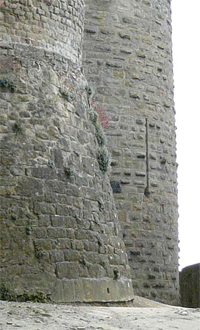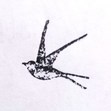Lockdown: Tokyo Drift #5 – Using What You Know
When I started writing, I started writing fantasy. I have, of course, continued to do so, but I’ve branched out a bit into sci-fi as I’ve gone along. But there were a few reasons I started with fantasy, and there are a few more reasons that I’ve continued doing it: because while I’m far from being an expert, I’ve picked up a lot of random bits of knowledge of history, culture and the like over the years, and they help to make things feel more alive.
I would tentatively describe myself as a historian (unless it’s on my business cards or my LinkedIn). I do, after all, do history for a living. And I’ve studied various bits of it for most of my life. Now I won’t pretend that I’ve actually remembered 90% of the things I’ve learned – if you’ve also studied history and written essays you’ll know that having reference books on hand the whole time means you don’t even have to remember dates – but some things have stuck with me. And because of the nature of most fantasy, those random bits of knowledge are the sorts of things that can be liberally sprinkled throughout tales of pseudo-medieval and ancient worlds to spice them up a bit.
For example: thanks to the AQA GCSE History syllabus and the fact that I lived near the Welsh border, I’ve learned a lot about the history of a) medicine and b) castles. Medical history is brilliant – the development of knowledge of the human body and science in general is fascinating to study (hence why I picked it up again at degree-level).
There were philosophical debates about the superpowers of angels in the Middle Ages that genuinely read like DC/Marvel fans debating who would win in a fight between Batman and the Hulk (Batman, fight me). Hippocrates and Galen’s theory of the Humours looks idiotic at first glance, but when you delve a little deeper you can see that it wasn’t actually as awful a set of ideas as it could have been. Medieval anatomy… that’s a complete mess, but at least we got wound-men out of it when the Renaissance came along. And all this knowledge comes in real handy, when you’re say writing a story about a plague doctor, or whenever someone needs mending in your fantasy writing (which if you’re me is quite frequently). Or if you’re writing about scholars of other disciplines. Ancient schools of thought are fascinating things.
 Hans von Gersdorff’s Feldtbuch der Wundartzney (Strasburg, 1519)
Hans von Gersdorff’s Feldtbuch der Wundartzney (Strasburg, 1519)Castles were another great topic. As I mentioned earlier, I lived near the Welsh border – which has more castles built on it than anywhere else in the world, because the English/Normans found the Welsh that annoying. (Go, possible distant ancestors!) That meant that I spent a lot of time in said castles, looking around them and learning how they were built to be impenetrable strongholds – which is extremely helpful when you’re, say, writing about a fantasy fortress under siege.

Did you know that the angled bit at the bottom of some castle walls is called a ‘batter’, and is designed so that when you drop rocks off the top of the wall they’d bounce straight outwards and brain besieging soldiers below? And that during the Civil War (the English one, not the American remake), the Roundheads systematically knocked all the battlements off the castles they captured and made holes in the walls so they couldn’t be used against them in the future? It was called ‘slighting’, and it’s the reason most British castles are in such sorry shape these days.
 Except Beaumaris on Anglesey, which is gorgeous and I want to go there so very badly…
Except Beaumaris on Anglesey, which is gorgeous and I want to go there so very badly…I’ve picked up plenty of other weird trivia over the years, and there are lots of historical events I’m itching to write analogues of (like the Siege of Antioch, which we made a fantasy cast-list for in my A-Level class which would make an amazing movie). But you don’t have to have studied history. Whatever you know about, whatever weird facts you remember, there’ll be a place for them somewhere if you choose to start writing – whether as a key part of the story or just as an aside. So don’t forget them.



